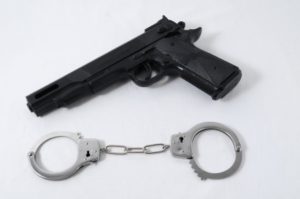 The Attorney General’s memo continues:
The Attorney General’s memo continues:
This approach is consistent with public safety, and the Consent Order does not preclude prohibiting the sale to or possession of stun guns by minors. Accordingly, we advise that, consistent with the Consent Order and the proposed rule: The prohibition under N.J.S.A. 2C:39-3(h) of possession of a stun gun may still be enforced against possession by minors under the age of 18; and the prohibition under N.J.S.A. 2C:39-9(d) of the sale or shipment of stun guns in New Jersey may still be enforced against the sale or shipment of stun guns to minors under the age of 18. Other provisions of the Criminal Code pertaining to stun guns remain in force and effect and shall continue to be enforced, including: N.J.S.A. 2C:39-4(d) —possession of a weapon (which is defined to include a stun gun) with a purpose to use it unlawfully against the person or property of another; N.J.S.A. 2C:39-4.1 —possession of a stun gun with a purpose to use it unlawfully against the person or property of another (subsection b.) or under circumstances not manifestly appropriate for such lawful uses as it may have (subsection c.), while in the course of committing certain drug offenses; N.J.S.A. 2C:39-5(d) -possession of a stun gun under circumstances not manifestly appropriate for such lawful uses as it may have; N.J.S.A. 2C:39-5(e)(2) —possession of a stun gun while in or upon any part of the buildings or grounds of any school, college, university or other educational institution without the written authorization of the governing officer of the institution; and N.J.S.A. 2C:39-7(a) —prohibition against “certain persons” purchasing, possessing, or controlling a stun gun. The foregoing guidance sets forth the extent under current law to which law enforcement may regulate the sale and possession of stun guns under the Criminal Code. Should the law be amended to establish new, additional, or alternate criminal or regulatory provisions, we will so advise.
The Attorney General’s concession is consistent with my prediction back in August of 2016, in the wake of the United States Supreme Court’s decision in Caetano v. Massachusetts. See Second Amendment Case Law (Part 2).
